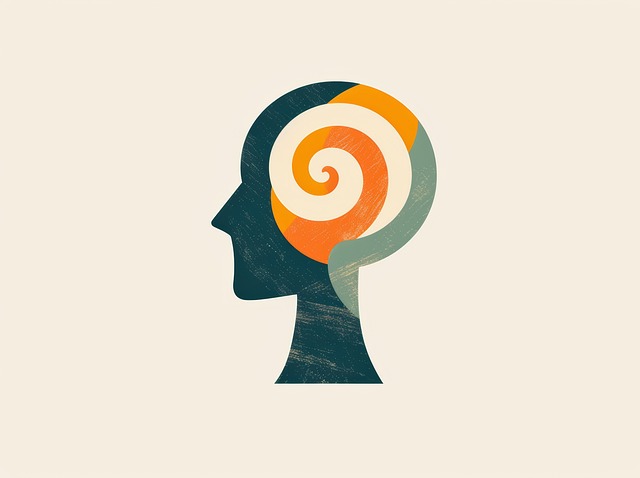Englewood Children's Therapy prioritizes mental wellness as a cornerstone of a child's overall well-being, addressing academic pressures, peer relationships, and family dynamics through strategies like positive thinking and mindfulness meditation. They promote journaling as a safe creative outlet for emotional expression and processing, enhancing self-care routines and social skills. Creating a dedicated journaling corner with personalized elements fosters calmness and comfort, empowering individuals on their mental health journeys. Interactive and personalized activities within journaling sessions, including prompts and creative exercises, deepen self-awareness, making therapy accessible and beneficial for all clients at Englewood Children's Therapy.
“Unleash your child’s emotional well-being with mental wellness journaling, a powerful tool from Englewood Children Therapy. This practice empowers kids to express their feelings and thoughts, fostering healthy coping mechanisms. Our guide navigates the benefits, offering insights on creating a safe, inviting space for journaling. Discover engaging activities and prompts tailored to young minds, helping them explore emotions, process experiences, and thrive. Embrace this transformative journey towards improved mental health.”
- Understanding Mental Wellness and Its Impact on Children
- The Power of Journaling for Kids' Emotional Expression
- Creating a Safe Space: Setting Up the Journaling Corner
- Engaging Activities and Prompts for Effective Journaling Sessions
Understanding Mental Wellness and Its Impact on Children

Mental wellness is a fundamental aspect of overall health, especially for children. At Englewood Children’s Therapy, we understand that nurturing mental wellness in young minds is essential to their present and future well-being. Childhood is a critical period where experiences and emotions can shape a child’s psychological development.
Children face various challenges, from academic pressures to peer relationships and family dynamics. Issues like anxiety, depression, and stress are not uncommon among kids today. Encouraging positive thinking and mindfulness meditation practices early on can be transformative. These tools help children develop resilience, emotional awareness, and healthy coping mechanisms, ensuring they navigate life’s challenges with greater ease and a stronger sense of mental wellness.
The Power of Journaling for Kids' Emotional Expression

Journaling is a powerful tool that can help kids express their emotions in a safe and creative space. For children, especially those undergoing therapy at Englewood Children’s Therapy, putting pen to paper allows them to process and communicate feelings they might find difficult to articulate verbally. This practice offers a unique opportunity for self-reflection and emotional liberation. By jotting down their thoughts, kids can gain a better understanding of their emotions, identify triggers, and develop healthier coping mechanisms.
Encouraging a regular journaling routine as part of a self-care regimen can be beneficial for mental wellness. It fosters a sense of ownership over one’s emotional well-being and provides an outlet for self-expression. Through this process, children can enhance their social skills training by learning to recognize and manage their feelings, which is crucial for building healthy relationships and improving overall mental health, as highlighted in various mental wellness podcasts.
Creating a Safe Space: Setting Up the Journaling Corner

Creating a dedicated journaling corner can transform your space into a safe haven for self-reflection and emotional exploration. At Englewood Children’s Therapy, we emphasize the importance of cultivating a nurturing environment to support mental wellness. Start by selecting a quiet area, free from distractions, where you can retreat to connect with yourself. This could be a cozy corner in your bedroom or a peaceful nook in your living room.
Personalize your journaling space with items that inspire calmness and comfort. Soft lighting, a comfortable chair, and a few meaningful decorations can make all the difference. Consider adding elements that represent emotional regulation and self-esteem improvement, such as uplifting quotes, crystals, or plants, to create a sense of tranquility and empower your journey towards better mental health.
Engaging Activities and Prompts for Effective Journaling Sessions

Engaging activities and prompts are key to making mental wellness journaling sessions effective and enjoyable. At Englewood Children’s Therapy, we encourage clients to explore their feelings through various exercises tailored to individual needs. Simple prompts like “Describe a day when you felt truly present” or “Reflect on a recent challenge and how it changed your perspective” can stimulate thoughtful writing. For a more interactive approach, incorporating activities such as drawing, collage making, or even mindfulness exercises before journaling can enhance self-awareness and expression.
Using these strategies facilitates a deeper connection with one’s emotions and thoughts. Mental wellness journaling exercise guidance, like that provided by Englewood Children’s Therapy, can serve as a valuable tool for individuals looking to improve their mental health. Remember, effective journaling is not about perfect prose but rather an honest exploration of inner experiences, making it an accessible practice for all.
Mental wellness journaling can be a powerful tool for children, as evidenced by the benefits of Englewood Children Therapy. By creating a safe space and using engaging activities, parents and caregivers can help kids express their emotions effectively. Journaling encourages self-awareness, provides an outlet for creative expression, and promotes mental resilience—all crucial aspects of navigating life’s challenges. With consistent practice, this simple exercise can have a profound impact on a child’s overall well-being.










